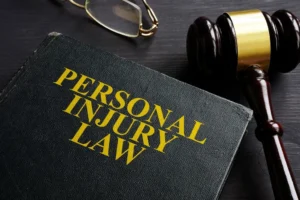Losing a loved one is undoubtedly one of the most challenging experiences life can throw at us. When that loss is a result of someone else’s negligence or wrongful actions, it’s not only emotionally devastating but also legally significant. This article aims to guide you through the intricate process of filing a wrongful death claim, providing insights and practical steps to navigate this challenging journey.
Understanding Wrongful Death
Legal Basis and Criteria
In legal terms, a wrongful death occurs when a person dies due to the negligence or misconduct of another party. To file a claim successfully, it’s crucial to understand the legal criteria and basis for such cases.
Common Causes of Wrongful Death
Before proceeding, one must be aware of the common scenarios leading to wrongful death claims. These may include accidents, medical malpractice, or intentional harm, each requiring a distinct approach in the legal process.
Initial Steps After a Tragic Incident
Seeking Medical Attention
The immediate aftermath of a tragic incident demands prompt medical attention. Beyond its obvious health implications, swift medical intervention can also play a pivotal role in the legal proceedings.
Contacting Authorities
Simultaneously, contacting the appropriate authorities is crucial for initiating an official record of the incident. This step lays the groundwork for a potential wrongful death claim.
Related: 8 Tips for Finding Criminal Barrister with Successful Track Records
Gathering Evidence
Importance of Documentation
The success of a wrongful death claim often hinges on the strength of the evidence collected. Thorough documentation of the incident, medical records, and any related communication can significantly bolster your case.
Witnesses and Their Statements
Eyewitness accounts can provide essential perspectives. Gathering statements from witnesses adds credibility to your claim, enhancing its chances of success.
Choosing the Right Attorney
Specialization in Wrongful Death Cases
Selecting an attorney experienced in handling wrongful death cases is paramount. Their expertise in navigating this specific legal terrain can make a substantial difference in the outcome.
Evaluating Legal Expertise
Carefully evaluating the attorney’s track record and expertise is crucial. Look for successful case histories and a deep understanding of relevant laws.
Filing the Wrongful Death Claim

Necessary Documents
Initiating a wrongful death claim involves filing specific documents. Ensuring you have all necessary paperwork in order is essential for a smooth legal process.
Statute of Limitations
Understanding the statute of limitations is crucial. Failing to file within the designated timeframe may result in the claim being dismissed.
The Investigation Process
Role of Law Enforcement
Cooperating with law enforcement during their investigation is vital. Providing the necessary information can expedite the legal process.
Cooperation with Investigators
Being cooperative and transparent with investigators demonstrates a commitment to seeking justice. This can positively impact the outcome of your case.
Negotiating with Insurance Companies
Understanding Compensation
Navigating discussions with insurance companies requires a clear understanding of the compensation you are entitled to. Be prepared for negotiations to ensure a fair settlement.
Avoiding Common Pitfalls
Insurance companies may attempt to minimize payouts. Understanding common pitfalls and tactics can help you avoid compromising your rightful compensation.
Potential Legal Actions
Settlement vs. Trial
Determining whether to settle or go to trial is a critical decision. Your attorney’s guidance will be instrumental in making an informed choice.
What to Expect in Court
For those opting for trial, understanding the court proceedings and what to expect is essential for mental preparation.
Emotional and Psychological Support
Coping with Grief
The emotional toll of losing a loved one is immense. Seeking professional counseling and support groups can aid in coping with grief during the legal process.
Support Groups and Counseling
Connecting with others who have experienced similar losses provides a supportive community. Counseling services can offer coping mechanisms tailored to your situation.
Related: The Social Security Disability Lawyer
Timeframe for Resolving a Claim

Factors Affecting the Timeline
Several factors influence the timeframe for resolving a wrongful death claim. Understanding these factors can help manage expectations throughout the process.
Patience in the Legal Process
Exercising patience is crucial. Legal processes can be lengthy, and maintaining realistic expectations is vital for your emotional well-being.
Compensation Distribution
Legal Heirs and Beneficiaries
Understanding how compensation is distributed among legal heirs and beneficiaries ensures a fair and just outcome.
Tax Implications
Be aware of any tax implications related to the compensation received. Seeking financial advice may be beneficial to navigate this aspect of the process.
Avoiding Common Mistakes
Importance of Legal Guidance
Relying on legal expertise is essential to avoid common mistakes that could jeopardize your case. Your attorney’s guidance can prevent missteps.
Pitfalls to Be Aware Of
Being aware of potential pitfalls, such as accepting inadequate settlements, empowers you to make informed decisions throughout the process.
Case Studies
Real-Life Examples of Wrongful Death Claims
Examining real-life case studies provides insights into the varied nature of wrongful death claims and the lessons learned from each.
Lessons Learned
Learning from the experiences of others can inform your approach and decision-making, contributing to the success of your claim.
Conclusion
In conclusion, filing a wrongful death claim is a complex process that demands a strategic and comprehensive approach. By following the outlined steps, seeking legal guidance, and maintaining patience, you increase the likelihood of a favorable outcome. Remember, this journey may be challenging, but seeking justice for your loved one is a worthy pursuit.
FAQs (Frequently Asked Questions)
- How long does it take to resolve a wrongful death claim?
- The timeframe varies, depending on factors like complexity, cooperation, and legal proceedings.
- Can I file a wrongful death claim without an attorney?
- While it’s possible, having an experienced attorney significantly improves your chances of success.
- What compensation am I entitled to in a wrongful death claim?
- Compensation varies but may include medical expenses, funeral costs, and loss of financial support.
- What happens if the responsible party denies wrongdoing?
- Your attorney will gather evidence to establish liability and support your claim.
- How can I cope with the emotional toll of the legal process?
- Seek support from counseling services and support groups tailored to grieving individuals.








